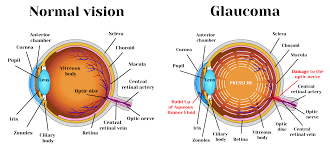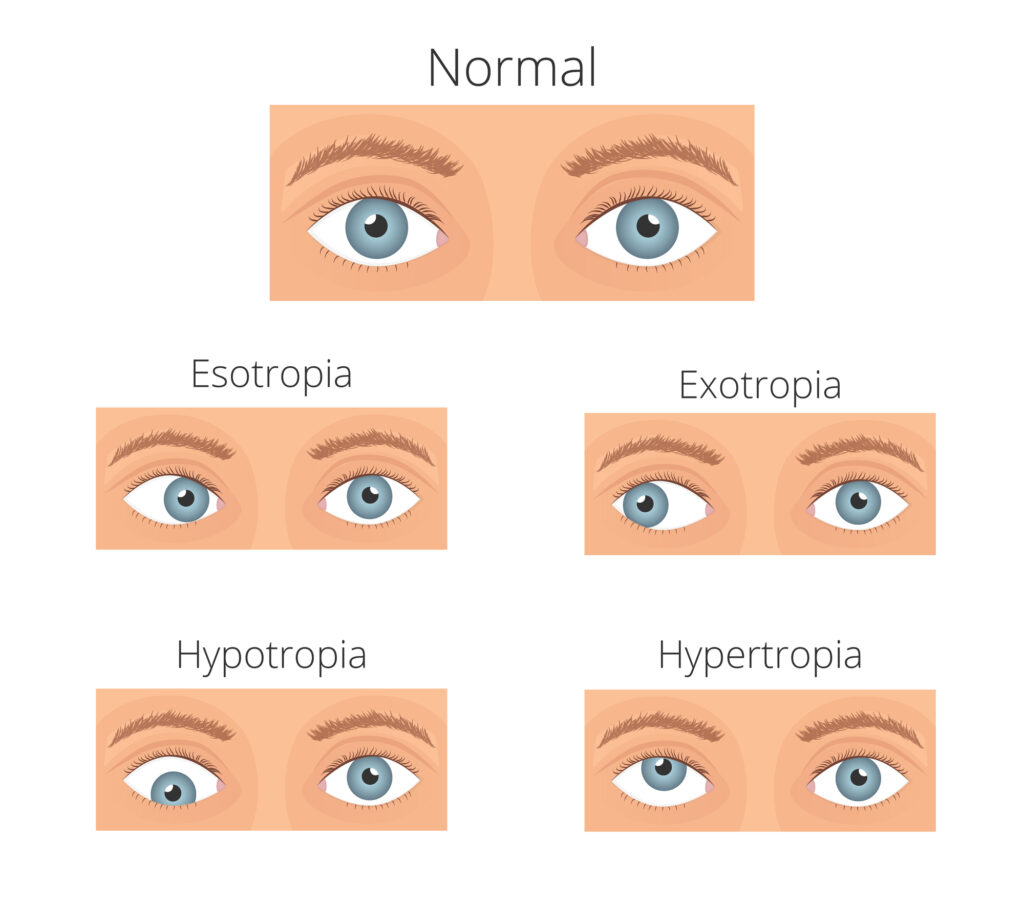Glaucoma is often referred to as the “silent thief of sight” because it typically develops slowly and without noticeable symptoms in its early stages. However, as the disease progresses, symptoms may become more apparent. It’s important to note that these symptoms can vary depending on the type of glaucoma. Here are common symptoms associated with glaucoma:
- Gradual Loss of Peripheral Vision (Tunnel Vision): One of the hallmark symptoms is the gradual loss of peripheral vision. Individuals with glaucoma may notice that their side or peripheral vision is diminishing over time.
- Blurred Vision: Blurred vision can occur as glaucoma advances. Objects in both the near and far distance may appear hazy or unclear.
- Halos Around Lights: Some people with glaucoma may experience the perception of halos around lights, particularly in low-light conditions. This can contribute to difficulty with night vision.
- Eye Pain or Discomfort: In some cases, glaucoma may cause eye pain or discomfort. This is more common in acute angle-closure glaucoma, a less common but more urgent form of the condition.
- Headaches: Individuals with glaucoma may experience headaches, particularly around the eyes. This can be a result of increased intraocular pressure.
- Nausea and Vomiting: Acute angle-closure glaucoma, which is a medical emergency, may cause nausea and vomiting along with severe eye pain and vision disturbances.
- Blind Spots in Central Vision: As glaucoma progresses, it can lead to blind spots in the central part of the visual field, impacting activities such as reading and recognizing faces.
- Difficulty Adjusting to Darkness: People with glaucoma may find it challenging to adjust to darkness or low-light environments, experiencing increased visual difficulty in these conditions.
It’s crucial to emphasize that the early stages of glaucoma may not present noticeable symptoms. Regular eye examinations, especially for individuals at higher risk due to factors such as age, family history, or certain medical conditions, are essential for early detection and timely intervention.
If you experience any sudden changes in vision, severe eye pain, or symptoms indicative of acute angle-closure glaucoma, seek immediate medical attention, as this is considered a medical emergency. Early diagnosis and treatment are key to managing glaucoma and preserving vision.
Embark on a journey to optimal eye health with Dr. Seema Behl, your dedicated and experienced ophthalmologist in Andheri West. Dr. Behl brings a wealth of expertise to address all your vision care needs.




